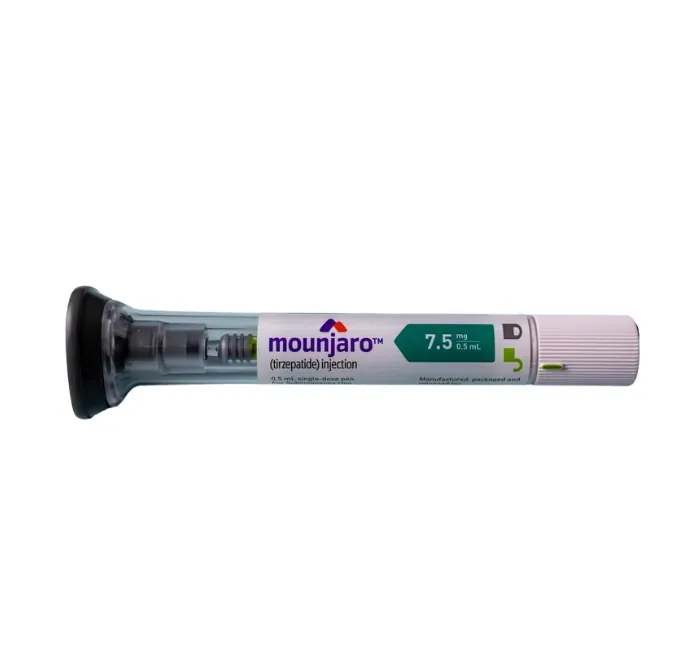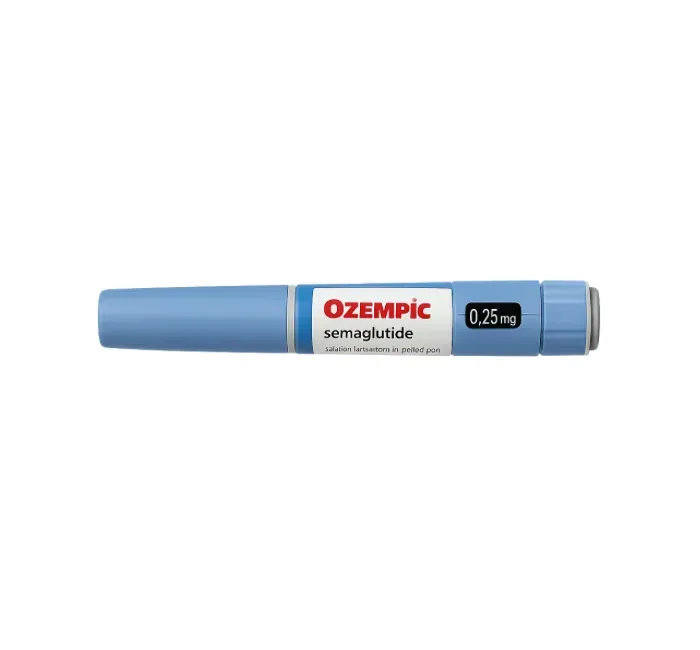Does Zepbound need to be refrigerated?

Zepbound (tirzepatide) is the newest weight loss drug from Eli Lilly. It is a weekly injection that has had better results when compared to similar medications such as Saxenda and Wegovy. Zepbound has specific storage instructions you need to follow to ensure it keeps its potency.
It should be stored in the original carton in a refrigerator between 36°F to 46°F (2°C to 8°C) until you are ready to use it. However, each single-dose pen can be stored out of the refrigerator as long as temperatures do not exceed 86°F (30°C) for up to 21 days. If you store your single-dose Zepbound pen at room temperature, you should not return it to the refrigerator. After 21 days, you need to discard the pen if it has not been used.
Read on to learn all about Zepbound, including how it works, what its side effects and precautions are, and other frequently asked questions.
Zepbound FAQs
What is Zepbound?
Zepbound (tirzepatide) is a weekly injection that is given as a subcutaneous (under the skin) injection in your abdomen, upper arm, or thigh. Zepbound is FDA-approved along with regular exercise and a reduced-calorie diet for chronic weight management in adults with an initial body mass index (BMI) of:
- 30 kg/m2 or higher (obesity)
- 27 kg/m2 or higher (overweight) with at least one weight-related condition such as high cholesterol, high blood pressure (hypertension), type 2 diabetes, heart disease, or obstructive sleep apnea
Tirzepatide is the active ingredient in Zepbound. It contains the same active ingredient as the type 2 diabetes medication, Mounjaro. Tirzepatide is a glucagon-like peptide-1 (GLP-1) and glucose-dependent insulinotropic polypeptide (GIP) receptor agonist. It works just like GLP-1 and GIP, which are 2 hormones released in your gut. These hormones help regulate your blood sugar and appetite. GLP-1 and GIP target areas in your brain to help decrease appetite and slow down digestion to help you feel full faster and longer. This can help you eat less and lose weight. They also stimulate your pancreas to release insulin, which reduces your blood sugar levels.
What are the side effects of Zepbound?
The most common side effects of Zepbound in clinical trials when compared to placebo include:
- Nausea
- Diarrhea
- Vomiting
- Indigestion
- Constipation
Some other possible side effects of Zepbound include:
- Burping
- Fatigue
- Stomach pain
- Hair loss
- Injection site reactions
- Dizziness
Zepbound may also cause more serious side effects including:
- Serious allergic reactions, including:
- Hives
- Swelling of your throat and tongue
- Trouble breathing
- Increased risk of thyroid cancer or thyroid tumors.
Seek immediate medical attention if you notice a lump on your neck, have trouble breathing or swallowing, or have hoarseness that does not go away.
Pancreatitis (inflammation of your pancreas).
Call your healthcare provider immediately if you develop severe pain in your stomach area that may spread into your back, with or without vomiting.
Kidney damage including kidney failure.
Be sure to drink plenty of fluids if you are experiencing stomach-related side effects such as vomiting and diarrhea. Let your healthcare provider know if you are having problems urinating as it could be a sign of dehydration or kidney problems.
Gallbladder problems including gallstones.
Contact your healthcare provider right away if you experience severe pain in the upper part of your stomach, fever, nausea, or vomiting.
Hypoglycemia (dangerously low blood sugar).
Shop Medications
If you are taking Zepbound along with sulfonylureas or insulins, you may need to adjust the dose of these medications to help avoid low blood sugar levels. Seek medical attention right away if you still feel shaky, dizzy, nervous, irritated, confused, or weak after you have treated yourself for low blood sugar.
Vision changes in people with type 2 diabetes (diabetic retinopathy).
Notify your healthcare provider if you notice any changes in your vision while taking Zepbound.
Worsening depression or suicidal thoughts.
Contact your healthcare provider immediately or seek medical help if you have worsening depression or thoughts of hurting yourself.
These are not all of the possible adverse events of Zepbound. You should always seek medical advice from a healthcare professional for any questions or concerns about your medical condition or treatment. You should also read all the patient information, including your Medication Guide that comes with Zepbound. You can report side effects to the FDA at 1-800-FDA-1088 or www.fda.gov/medwatch.
Who should not use Zepbound?
The Food and Drug Administration (FDA) recommends people who have a personal or family history of medullary thyroid carcinoma (MTC) should not use Zepbound along with people with Multiple Endocrine Neoplasia syndrome type 2 (MEN 2). You should also avoid this medication if you are allergic to tirzepatide or any inactive ingredient in this product.
What precautions are there with Zepbound?
You should be sure your healthcare provider is aware of all your medical conditions as they may be contraindications or you may need increased monitoring during treatment, including if you:
- Currently have or have a history of kidney or pancreas problems.
- Have severe stomach problems such as slowed emptying of your stomach (gastroparesis) or problems with digesting food.
- Currently have or have a history of diabetic retinopathy.
- Are pregnant or plan on becoming pregnant.
Zepbound may cause harm to your unborn baby. There will be a pregnancy registry if you are pregnant and have taken Zepbound to collect information on the effects this medication has on you and your baby. You can talk to your healthcare provider about getting on the registry or you can contact Eli Lilly at 1-800-LillyRx (1-800-545-5979).
Oral birth control pills may not work as well if you take Zepbound. You will need to use another type of birth control for 4 weeks after starting this medication and for 4 weeks after each increase in your dose of Zepbound. Talk to your healthcare provider about which alternative birth control methods may be right for you.
Are breastfeeding or plan on breastfeeding. It’s not known if this medication is found in breast milk or what effects it may have on your breastfed child or milk production.
Are there any drug interactions with Zepbound?
When Zepbound is taken with other prescription drugs, over-the-counter medications, vitamins, herbal products, and supplements, it may change how they work or increase the risk of side effects. Be sure to tell your healthcare provider about all your current medications, including:
- Other medications that can lower your blood sugar such as insulin.
- Oral medications, since Zepbound slows down digestion and can change how much these medications are absorbed.
Can Zepbound be kept at room temperature?
Yes, if needed, your Zepbound pen can be kept at room temperature as long it does not exceed 86°F (30°C). You can keep it at room temperature for up to 21 days. If you store your pen at room temperature, it should not be returned to the refrigerator.
What happens if you don’t refrigerate Zepbound?
It is best to store Zepbound in the fridge between 36°F to 46°F (2°C to 8°C) until you are ready to inject your dose. Avoid storing your Zepbound pen near the cooling unit inside the fridge. If kept in the fridge, Zepbound will be good until the expiration date that is on the package. If it is left out, however, Zepbound is only good for 21 days once it reaches room temperature. It should not be returned to the fridge if it has been stored at room temperature.
Related Medications
- Mounjaro (tirzepatide)
- Ozempic (semaglutide)
- Rybelsus (semaglutide)
- Trulicity (dulaglutide)
- Victoza (liraglutide)
- Saxenda (liraglutide)











